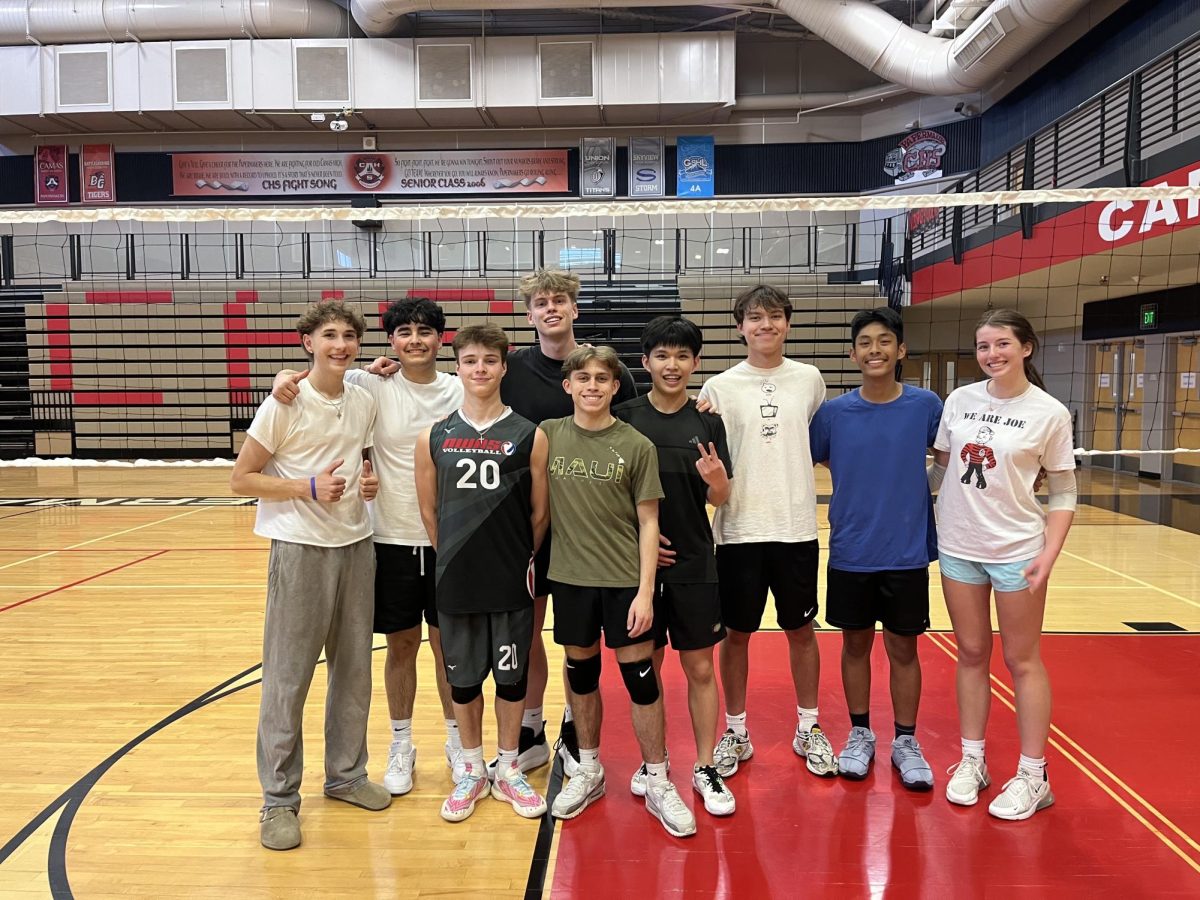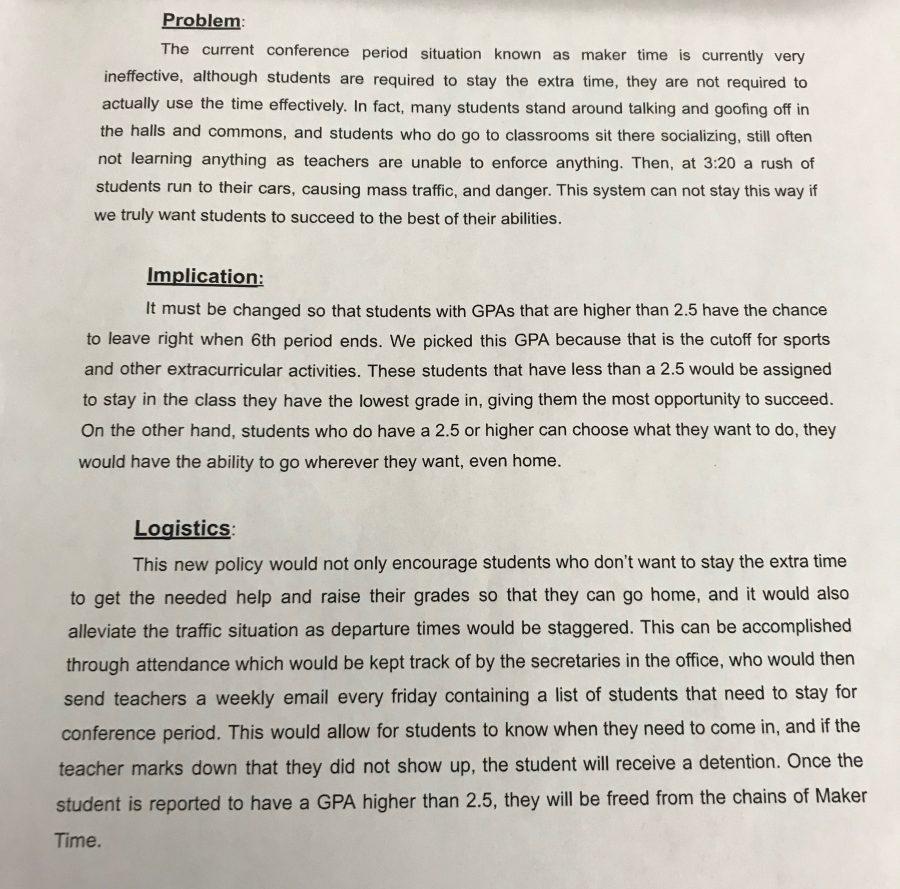
On Friday, December 14th, CHS students in Mrs. Sarah Widdop’s AP Language classes presented to administration about revising Maker Time.
Prior to the presentstions, the students wrote a conclusion/call-to-action paragraph in response to a prompt. This prompt directed the students to explain their “position on Maker Time and provide possible considerations CHS teachers and administrators should make when analyzing and implementing effective student support systems.”
After the students wrote their call-to-action paragraphs, Widdop then assigned students into groups with others that shared similar responses. The groups would then present to the CHS administration with proposals on how Maker Time could be improved – ending up being 20 proposals from Widdop’s three AP classes.
Junior Matt Andrade and his group suggested moving Maker Time before 5th period. This being so people could be “held more accountable and have things to work on from periods 1-4,” Andrade comments.
The move would put Maker Time after B-Lunch, shifting 5th and 6th periods back 37 minutes. This would result in 5th and 6th periods starting at 1:39 and 2:37 respectively. Still maintaining the 53 minute periods, this would make 5th period end at 2:32 and 6th at 3:30. This proposition has 0 period to B-Lunch remaining congruent to the current schedule.
Andrade adds that with the current status of Maker Time, “People leave early” and “aren’t very productive”. This new proposal, Andrade thinks, will make students “less burned out.”
Mrs. Widdop agrees with Andrade stating that she worries about the “end of the day motivation” with the current position of Maker Time.
Philip Kuhle and his group suggest going back to Advisory period from years past. Students had Advisory between 1st and 2nd period, but only a few times a year. One difference in Philip’s plan – students would go to their Advisory teachers every day instead of scarcely throughout the year. During the period, students would go to a designated class for attendance, then be free to “go to a class of their choice, or a class that a teacher asked them to go to for the remaining 25 minutes,” the group proposes. This proposal also includes an optional 20 minute conference period at the end of the day.
These are just two of the numerous bids from Widdop’s students to revise Maker Time.
Regardless of what unfolds with Maker Time and how it could be altered on the schedule, we wouldn’t witness immediate changes to the schedule. “Change is really slow,” Widdop observes, “so what [the students] are proposing we might not see this year. . . but we might see next year.” With so many schools, programs, and other services running across the Camas School District simultaneously, it would be near impossible to apply changes right away.
“There are pieces of everybody’s [proposition] that I think are valid,” Widdop observes. Because of this, she then goes on to predict that we probably won’t see “one person’s idea [amend the current version of Maker Time], but rather pieces of all the ideas being influential.”
Overall, Widdop feels that “We should have [had students propose ideas] last year” before a mandatory conference period was added to the schedule; “If we’re here to support our students, we probably should’ve gotten more of their opinion[before making any changes],” Widdop voices.

































